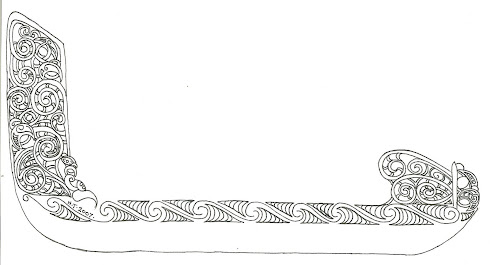Saturday, June 14, 2008
IS THERE STILL A PLACE FOR PEDAGOGY?
I've been pondering the place of pedagogy as opposed to andragogy within 21st century learning environments. Is it a case of either/or both within the classroom?
The trigger for this was in watching a group of teachers observe a classroom setting. The children were away on the task to hand, engaged, interdependent on their fellow team members to uncover new ideas. The majority of the observers were unable to resist and they inched their way forward until they too became involved. The interactions within the groups now changed. The children, instead of looking and talking with one another, now focused their attention, often for the reassurance that their answers were correct, on the teacher.
My thoughts? How much faith do we really have in our children's ability to learn?
Pedagogy is described as the art or science of being a teacher. From the Greek "to lead a child," pedagogy relates to the science of teaching children. Androgogy, the science of teaching adults.
Pedagogy is generally teacher-centred, Androgogy learner-centred.
Pedagogy has the teacher deciding who should learn what, when and how.
Andragogy has the learner in charge of their learning.
Historically I can see that there would have been clear distinctions. After all adults knew it all, and students were subservient within these understandings. Yet, I wonder now if those distinctions are no longer clear, that perhaps the two are battling or merging within today's 21st century world, with a match winner in Andragogy.
Popularized by Knowles, Andragogy assumes that adults, unlike children,
- enjoy learning which has relevance to real-life tasks
- are self directed, can self-evaluate
- provide a rich resource for one another (because of their experiences)
- prefer learning to be organized around life/work situations rather than around subject matter
- prefer problem-based learning which is applicable to their lives.
- have internal motivators for learning: self value, recognition, better quality of life etc
Following an Andragogical approach, a teacher becomes the facilitator of learning, providing materials and resources, assisting to keep discussions in the right direction, staying out of the way to let learning happen
Pedagogy on the other hand includes a wide variety of theorists e.g. Bloom, Dewey, Vygotsky, Piaget, Steiner, Montessori and extends to a wide range of practices. However, from what I have read pedagogy seems to fall very much within the traditional approach to classroom practice.
The student's learning success is dependent upon the Teacher...
- telling them what they have to learn in order to advance to the next level
- directing, controlling and assuming responsibility for what is taught and how it is learned
· evaluating the learning.
"How does a connected, constructivist learning environment where students often have as much if not more knowledge than the "teacher" about the process, tools or matter of learning, fall into a "pedagogical" framework?" I wonder...
I a rich,real and relevant learning environment would androgogical practices provide better success?
I suspect a framework of andragogy is far more relevant. Perhaps the "age" for androgogy has descended. Perhaps it may simply be a definition of when someone becomes an adult learner - the age of maturation so to speak.
Androgogy can be used with children. Perhaps too pedagogical approaches can also work with adults. After all this is the framework which has supported us to become teachers.
My concern is whether this still works for today's students and in today's world and if indeed it ever really did work for the large number of students all over the world who have not gone on to become teachers....
I guess it comes down to the faith we have in ourselves to "make a difference" and in our own children's ability to learn and do the same.
Subscribe to:
Post Comments (Atom)
RELLCO

Our Cluster Journey Together Into New Horizons.
1 comment:
Hi Lorraine
Very thought provoking ponderings! As a Kindergarten Teacher we are constantly challenging ourselves to let the children take control of their learning - using the emergent curriculum and picking up on their interests and guiding them to extend their learning and set themselves learning goals. We are continually impressed by the amount of powerful learning that is happening with children under 5 when they are "choosing" their learning path and are totally engaged in their interests. I will share your ponderings with my team members...
Tania
Manaia Kindergarten
www.manaiakindergarten.blogspot.com
Post a Comment